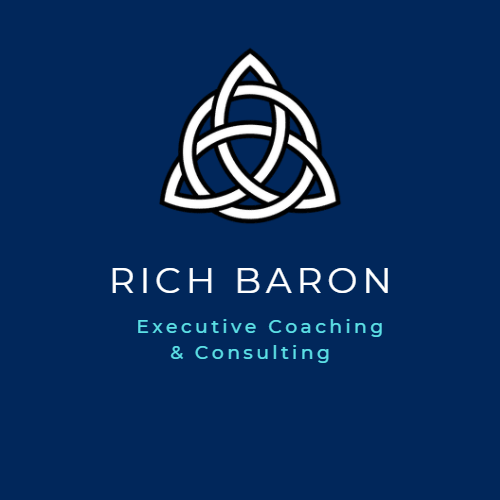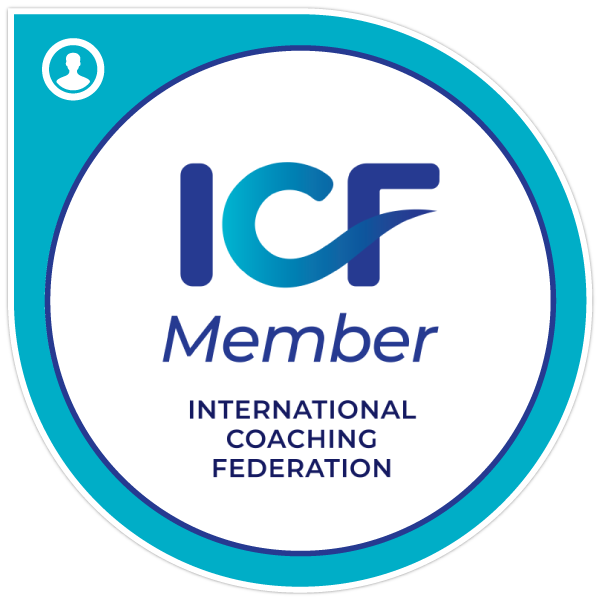Are Leaders the Real Heroes
Rich Baron • February 6, 2024
A hero may lead, but only if they inspire others to follow
“A hero is no braver than an ordinary man, but he is brave five minutes longer.” – Ralph Waldo Emerson.
As I think back, there are so many people that I have looked up to throughout my life. Many of them I considered a personal hero. When I think of a hero, I think of someone brave, strong, hardworking, trustworthy, and unselfish. Someone who can protect you and make life better. Everyone has someone they look up to and want to be just like one day and everyone has different opinions and who a true hero is.
The fascination with heroes can be attributed to several factors. First and foremost, heroes embody qualities and virtues that we admire and aspire to have ourselves. They are usually courageous, and selfless, and possess exceptional skills or abilities. Their actions inspire us and give us hope that we too can make a difference in the world.
Additionally, stories about heroes often serve as a form of escapism. They transport us to worlds where good triumphs over evil, where justice is served, and where ordinary individuals can rise above their limitations to achieve greatness. Heroes accomplish well-defined feats of courage in the arena of life. They disarm droves of enemy combatants singlehandedly. They rescue hostages against all odds, and they volunteer for seemingly impossible missions. In a world filled with challenges and uncertainties, these stories provide a sense of comfort and reassurance.
So, can leaders and heroes be the same? The simple answer is no. The reason for this is that Heroes and Leaders are distinct entities, and it is crucial to recognize this distinction while considering the most effective ways of leading our organizations. The main difference is consistency and the fact that heroes do not have to influence others. A leader, on the other hand, is expected to bring out the best in his followers. The leader must set an example and he must gain trust. A leader must be consistent, assimilating these qualities into his character.
Let’s look at some of the differences between Leaders and heroes:
1. Leaders are responsible for creating and implementing a clear vision and direction for the organization. They set goals, develop strategies, and make decisions based on the big picture.
Heroes, on the other hand, are often focused on individual achievements and solving immediate problems. They may excel in their specific tasks and receive recognition for their accomplishments, but they may lack the ability to lead others and provide long-term solutions.
2. Leaders need to inspire and motivate their team members, fostering collaboration and building a strong sense of unity. They must be able to communicate effectively, delegate tasks, and provide guidance to ensure that everyone is working towards common goals.
Heroes may have individual charisma and the ability to garner attention, but they may not possess the necessary skills to inspire and guide others. They may not prioritize the development of their team members or invest time and effort into building relationships and trust.
3. Leaders are also responsible for managing the resources and processes of the organization. They are accountable for the overall performance and success of the team or organization. They need to be able to adapt to changes, overcome obstacles, and make tough decisions when necessary.
Heroes fulfill essential roles. They excel at problem-solving, accomplishing remarkable feats, and inspiring captivating narratives. Heroes may excel in solving specific problems or achieving short-term goals, but they may lack the ability to manage the bigger picture. Their presence is desired and admired, and they are elevated to a position of adulation.
4. Both heroes and leaders show courage. They are willing to go above and beyond the call of duty. They sacrifice themselves for the greater good and complete seemingly impossible tasks. The main difference is consistency and the fact that heroes do not have to influence others.
A leader, on the other hand, is expected to bring out the best in his followers. The leader must set an example and they have to gain trust. A leader must be consistent, assimilating these qualities into his character.
5. A hero reacts to events on a tactical level. The leader acts strategically.
It is not accurate to categorize leaders as heroes. While leaders possess certain qualities and skills that make them effective in guiding and inspiring others, they are still human and have their limitations. Heroes typically possess extraordinary powers or abilities that are not found in regular individuals. Additionally, leaders may encounter challenges, make mistakes, and face criticism, which contrasts with the idea of heroes always succeeding and being invulnerable.
A Leader Makes Things Happen
Leaders may have well-defined deeds on their records as well, but their value does not lie in heroics. An intelligent leader sees the big picture. They strategize, plan, and execute. Great leaders may inspire heroism in their followers, and when that happens, they see it as a positive development.
Over the years I have come to realize that those people that I truly admired in my life was not due to heroics, but authentic leadership. Not just in the organizational sense, but those types of leaders who were true servant leaders in all aspects of their lives.
Here is a list of those qualities that I feel make leaders greater than heroes:
• Long-term impact: While heroes may have immediate and impactful actions, their influence tends to be short-lived. On the other hand, leaders focus on creating sustainable change by implementing long-term strategies and solutions. They prioritize the overall growth and development of their teams and organizations.
• Versatility: Heroes often possess exceptional skills or abilities that make them great in specific circumstances or crises. However, leaders are adaptable and can effectively navigate different situations and challenges. They can make strategic decisions, inspire and motivate their teams, and provide guidance in various areas.
• Collaboration and teamwork: Leaders understand the importance of collaboration and team synergy. They promote cooperation, communication, and coordination among team members, which leads to more effective outcomes. Heroes, on the other hand, often rely on their abilities and can sometimes overshadow or overlook the contributions of others.
• Empowerment: Leaders focus on empowering others by delegating responsibilities, fostering skill development, and encouraging growth. They create a supportive environment where individuals can reach their full potential, contributing to the overall success of the team or organization. Heroes, in contrast, tend to be more individualistic in their approach.
• Ethical decision-making: Leaders prioritize ethical decision-making by considering the impact of their actions on all stakeholders involved. They consider the values and principles that guide their decisions, ensuring fairness, transparency, and integrity. Heroes, while often acting with good intentions, may sometimes prioritize immediate results over ethical considerations.
• Sustainability: Leaders think not only about short-term wins but also about the long-term sustainability of their organizations. They focus on building a strong foundation, cultivating a positive culture, and aligning their actions with the organization's mission and values. Heroes may achieve remarkable feats at the moment, but their actions may not always contribute to sustainable growth and success.
A great leader is constantly inspiring those around them. Leadership is about defining “the mission” and empowering others to help complete it. Earning respect and wielding influence are the specific tasks of the leader. A leader must be a constant source of long-term inspiration for their followers.
Wrapping Up
Acts of heroism are often impulsive and as such do not take a measure of true character. Sports heroes, celebrities, as well as business heroes, have proven countless times that heroism is difficult to sustain over time. However, unlike heroics, leadership can be learned, developed, improved, and sustained over time. Leadership training helps leaders discover their strengths and weaknesses, influence others through specific techniques, and earn the respect of those they lead.
Through leadership training, leaders gain the ability to develop plans to overcome their weaknesses. They become capable of seeing the “big picture” and acting or reacting to events on a strategic level. Overall, well-trained leaders bring stability, vision, collaboration, and sustainable change to their teams and organizations. While heroes may shine in specific situations, it is the consistent leadership approach that brings long-term success and growth.
About the Author
Rich Baron holds the esteemed title of Master Certified Intelligent Leadership Executive Coach at John Mattone Global. With a wealth of expertise spanning over 25 years, he has excelled in various realms such as cultural transformation, operational leadership, executive positions, and coaching individuals from emerging leaders to CEOs. Rich co-hosts "Mainline Executive Coaching ACT," a podcast acknowledged by FeedSpot in 2023, and again in 2024 as the foremost Executive Coaching Podcast worldwide. This recognition is based on an evaluation of numerous podcasts on the internet, taking into account factors such as web traffic, social media followers, and timeliness. The podcast enjoys a substantial following in more than 60 countries and 550 cities across the globe.

The First World War, occurring from 1914 to 1918, brought unprecedented destruction and violence. The impact of the First World War, in particular, forever transformed the nature of war. This conflict witnessed the deliberate targeting of civilians, the widespread use of chemical weapons, and the introduction of mechanized warfare on a large scale. The death toll reached a staggering 22 million people, with some accounts putting the toll closer to 37 million. However, amidst the chaos and brutality of the First World War, a brief and remarkable moment of peace unfolded on Christmas Day in 1914. It Will Be Over by Christmas Many of the 60 million soldiers sent to fight in the First World War were told that the war would be over by Christmas—a promise that turned out to be yet another falsehood in a conflict plagued with deception and misinformation. After war was declared in July 1914, it became clear by Christmas of that year that there was no end in sight. The Western Front was dotted with trenches, where millions of soldiers were packed together, enduring freezing conditions. Many of these soldiers were astonishingly close to their enemies, with the British and German trenches sometimes separated by a mere 30 meters. According to Daniel Coyle in his best-selling book “The Culture Code”, soldiers on both sides, because of proximity to each other, started noticing shared patterns of behavior and routines of cooking, re-supply, and troop rotations. Deepening the connection was the realization that both sides were enduring the same terror and stress of harsh conditions. On the late hours of Christmas Eve, German troops started opening gifts that they had received from home, including Christmas trees adorned with candles. The soldiers lit their lanterns and placed them along the edges of their trenches, creating a warm and festive atmosphere. As the candles flickered, the sound of carol singing resonated through the air. A Personal Account Bruce Bairnsfather, a British machine gunner who would later become a well-known cartoonist, vividly described the scene in his memoirs. Like his fellow infantrymen from the 1st Battalion of the Royal Warwickshire Regiment, Bairnsfather spent Christmas Eve shivering in the muddy trenches, desperately trying to keep warm. Having fought against the Germans for the past few months, he found himself in the Bois de Ploegsteert region of Belgium. In this unforgiving environment, Bairnsfather, cramped in a trench only three feet deep and three feet wide, faced constant sleeplessness and fear. His days and nights were filled with the repetitive cycle of anxiety, surviving on stale biscuits and cigarettes too damp to light. At about 10 p.m., Bairnsfather noticed a noise. “I listened,” he recalled. The Germans were singing carols, as it was Christmas Eve. The British soldiers in the trenches joined in by singing back. Amid this peaceful moment, a surprising occurrence unfolded. Bairnsfather and his comrades heard a bewildered shouting from the German side, causing them to pause and listen intently. The voice belonged to an enemy soldier who spoke English with a distinct German accent, calling out, "Come over here." In a remarkable turn of events, the British and French troops, inspired by the Germans, also participated in the Christmas truce. Fear and suspicion were set aside as soldiers began to exchange greetings and well-wishes between the trenches. Offers for a temporary ceasefire were communicated and accepted. With the dawn of Christmas morning, soldiers cautiously stepped out into no man's land. They greeted one another and engaged in an awe-inspiring display of humanity. Messages and gifts were shared as soldiers from opposing sides momentarily set aside their enmity. In some areas, caps and jackets were repurposed as goalposts, leading to impromptu and joyful football matches. It is even said that the Germans emerged victorious in one of these games with a final score of 3-2. Another British soldier, named John Ferguson, recalled it this way: “Here we were laughing and chatting to men whom only a few hours before we were trying to kill!” The temporary cessation of fighting continued in certain areas until the arrival of the New Year, but ultimately, the pause proved to be brief and the peace was short-lived. Although there were several other instances of similar truces during the war, none were as widespread or significant as the Christmas truce of 1914. Disapproval from Senior Leaders As expected, certain high-ranking officers on both sides viewed the Christmas Truce with disapproval. They issued orders explicitly forbidding any association with the enemy and warned of potential punishments for those who disobeyed, even execution for cowardice by firing squad for those who attempted to start another truce. However, the soldiers, who were already weary from the war (unaware of the years of continued fighting ahead), chose to take matters into their own hands. They defied the orders and acted independently to establish moments of peace, albeit temporary, amidst the turmoil of war. In an alternate account, it is reported that a German soldier named Adolf Hitler reprimanded his comrades during the Christmas Truce, expressing his disapproval by stating, "Such a thing should not happen in wartime. Have you no German sense of honor left?" Hitler, who was 25 years old at the time, conveyed his disdain for the temporary ceasefire. What Can We Learn as Leaders If enemies on the battle lines can create a culture of safety, respect, and belonging even during war, it suggests that similar conditions can be replicated within organizations. And indeed, there are ways to achieve this. According to Coyle, organizations that foster a strong sense of belonging can address the following questions to ensure a positive response from employees: 1. Are we connected? - Encourage open communication and collaboration among team members. - Foster a sense of unity and shared purpose. 2. Do we share a future? - Clearly, and often, communicate the organization's vision, mission, and goals. - Involve employees in decision-making processes to create a sense of ownership and shared commitment. 3. Are we safe? - Promote a culture of psychological safety where employees completely trust that the organization is a safe place to give 100% while expressing their opinions and taking risks. - Establish policies and practices that prioritize employee well-being and physical safety. To ensure a resounding "YES" to these questions, it is crucial to clearly and consistently communicate the organization's vision, mission, and goals. This can be achieved by: Communicate the purpose: An effective approach to communicate your organization's purpose is by using concise messaging throughout. Avoid using overly complex statements that potential employees may struggle to understand or feel apprehensive about living up to. Articulating the vision: Communicate the long-term aspirations and purpose of the organization. This overarching vision should inspire and provide a sense of direction for all employees. And that they are a crucial part of achieving the vision. Define the mission: Clearly define the organization's mission statement, which outlines its core purpose, main activities, and the value it delivers to its stakeholders. Regularly reinforce this mission to remind employees of the organization's primary focus. My Key Takeaways The Christmas Truce offers valuable lessons about leadership and culture that can be applied in various contexts. Although this event took place over 100 years ago, the lessons we must learn from those brave soldiers are still relevant today. So here are a few of my thoughts and key takeaways: 1. Leaders Set the Tone: The temporary ceasefire during the Christmas Truce was driven by individual soldiers who took the initiative to establish peace. This highlights the importance of leaders setting the right tone and creating an environment that encourages positive actions and behaviors. 2. Humanize the "Enemy": The soldiers involved in the truce showed empathy and compassion towards their supposed enemies. This serves as a powerful reminder that seeing the humanity in others, even in challenging circumstances, can foster understanding and connection. 3. Facilitate Connection and Communication: The Christmas Truce exemplified the power of connection and communication across divides. Leaders should create opportunities for open dialogue, collaboration, and relationship building, fostering a sense of community and common purpose. 4. Encourage Empathy and Respect: The truce demonstrated the significance of empathy and respect in promoting peaceful interactions. Leaders can cultivate these qualities by emphasizing the importance of understanding different perspectives and treating others with dignity and respect. 5. Boldly Challenge Norms: The soldiers who participated in the truce defied the established orders and norms, highlighting the potential for positive change when individuals challenge the status quo. Leaders should encourage everyone in their organizations to think differently and think big. Wrapping Up Even in today's world, the lessons from the Christmas Truce of 1914 remain pertinent. Individuals, regardless of their political beliefs and ideologies, will unite with their families to celebrate the birth of Jesus Christ, who symbolizes peace and salvation. It is a day when we commit ourselves to acts of generosity and spreading kindness to those around us. Afterward, instead of going back to our organizational trenches and shooting at each other verbally from within our siloed walls, we should stay in the “no man’s land” of compromise and conciliation and continue to find solutions to common problems. Like the soldiers in the Christmas Truce, we should make the spirit of goodwill at Christmas last more than one day. By consistently prioritizing and nurturing these elements year-round, organizations can create a culture that fosters a strong sense of belonging, ultimately leading to increased engagement, productivity, and overall organizational success. I wish you all a Merry Christmas and Happy Holidays. Thank you for your continued support and I wish you all the best for the coming new year. About the Author Rich Baron is the Chief Operating Officer and Director of Global Coaching Projects at John Mattone Global (JMG) and a Master Certified Intelligent Leadership® Executive Coach. He partners with C-level leaders and high-potential executives around the world to strengthen trust, elevate culture, and drive sustainable transformation. Rich leads large-scale coaching and cultural initiatives across multiple regions and industries, and serves as a strategic bridge between executive teams, HR, and global coaching networks. He is also the co-host of the Mainline Executive Coaching ACT podcast, recognized as one of the top executive coaching podcasts globally, where he explores the real-world challenges and opportunities facing today’s leaders. Through his work, Rich is dedicated to CHANGING THE WORLD One Leader, One Organization at a Time® by helping leaders move beyond performance and build the inner architecture required to become world-class executives.



